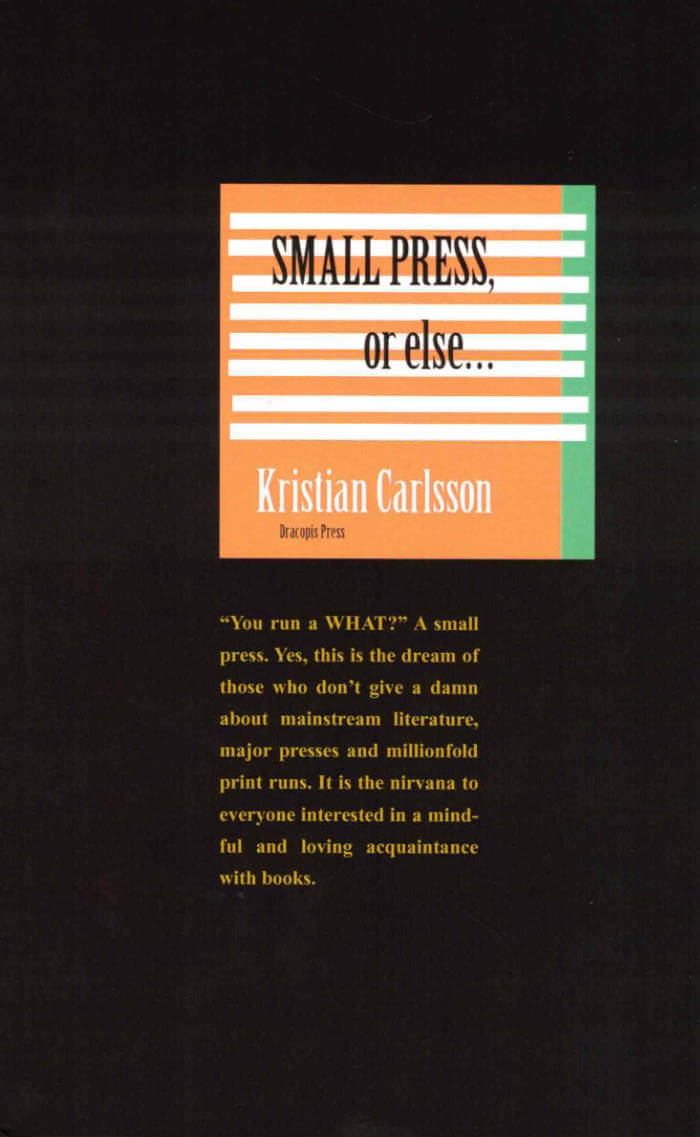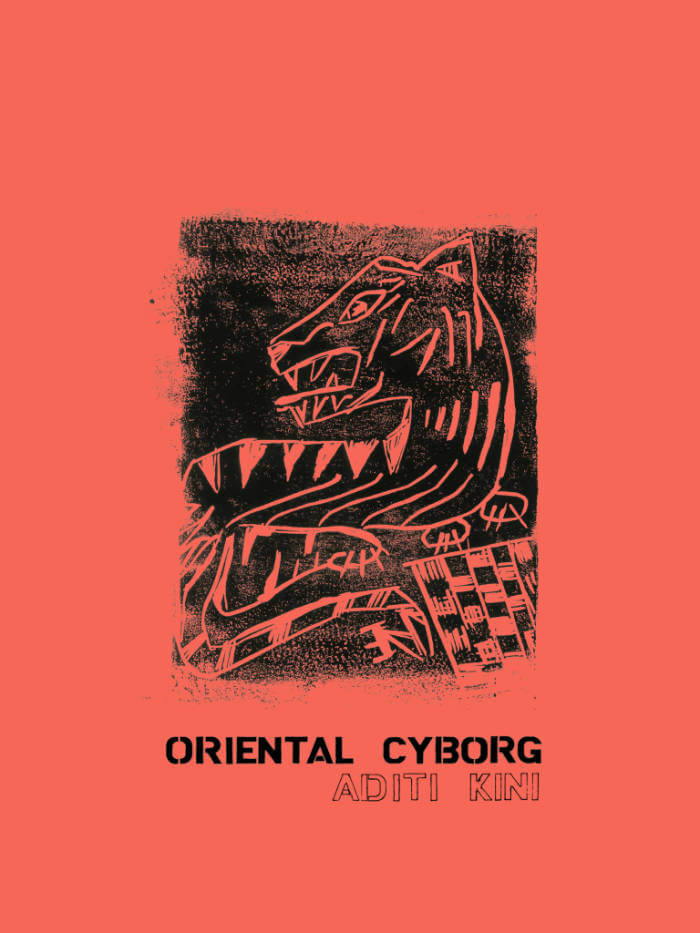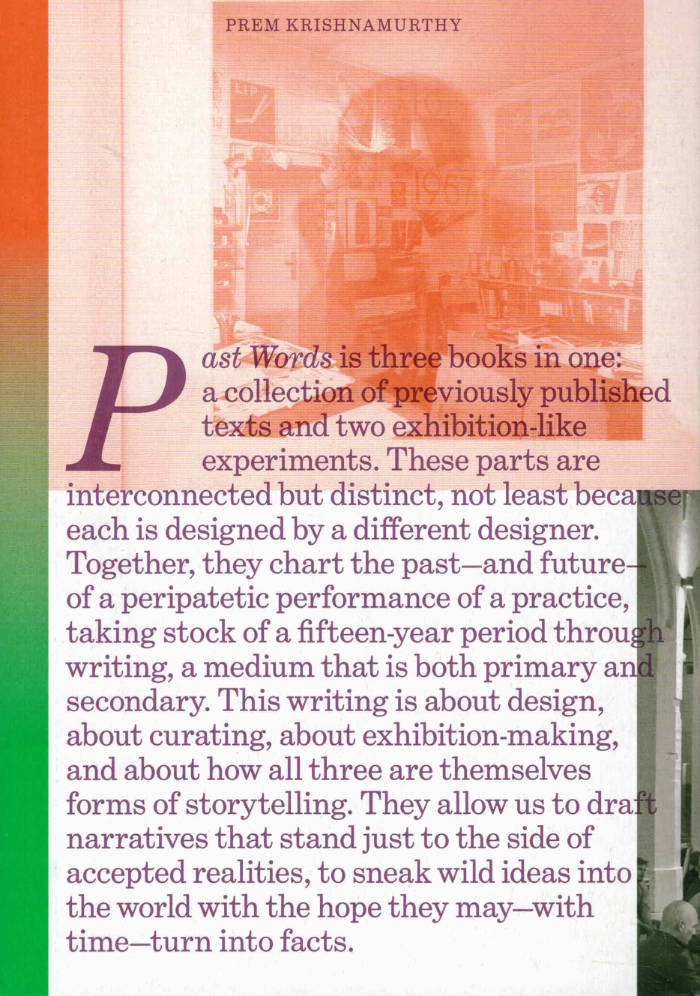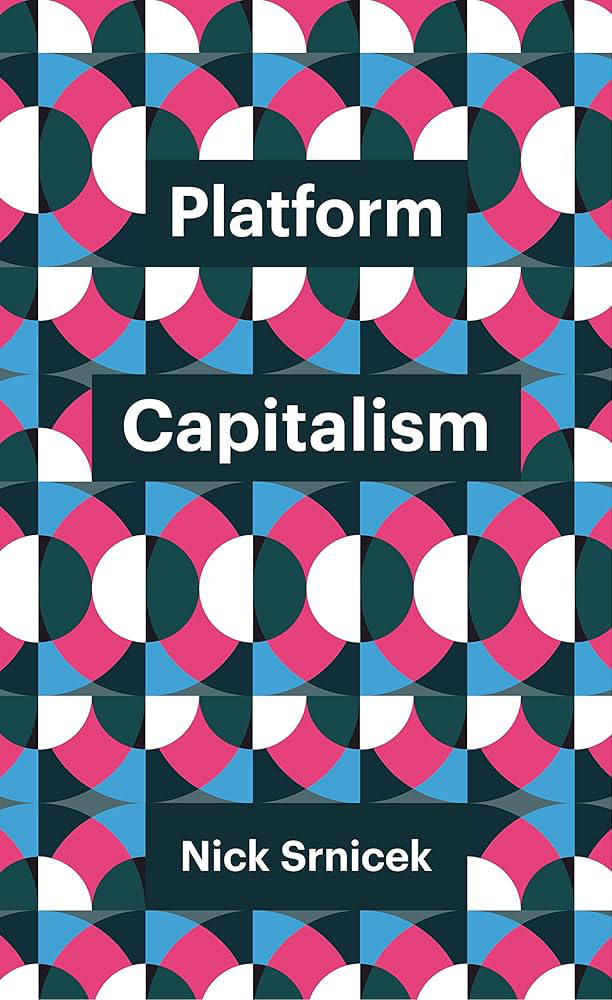
Small Press, or else...
“You run a WHAT?” A small press. Yes, this is the dream of those who don’t give a damn about mainstream literature, major presses and millionfold print runs. It is the nirvana to everyone interested in a mindful and loving acquaintance with books.
“Start out small. Continue smaller if needed. Never end. Dream big. Continue dreaming bigger if needed. Make sure to keep being considered small.”
This is not a basic guide, it is a fun and inspiring glance at the inner depth of a small press. With enthusiasm and distinctness the publisher gives advice on everything from networking to handling the scripts to creating and selling a book.
Kristian Carlsson (b.1978) is published in a number of select small presses following his literary debut in 1996. For a decade he had been engaged as an occasional guest editor and project based publisher, when he in 2009 founded Smockadoll Förlag [Smockadoll Press] and decided to publish contemporary poetry. In 2012 Smockadoll was featured by the news agency TT/ Spektra as one of a handful of today’s unsurpassed Swedish small presses for translated literature. During the years Kristian Carlsson most certainly has had time to break each and every one of the small press guidelines issued in this volume.





